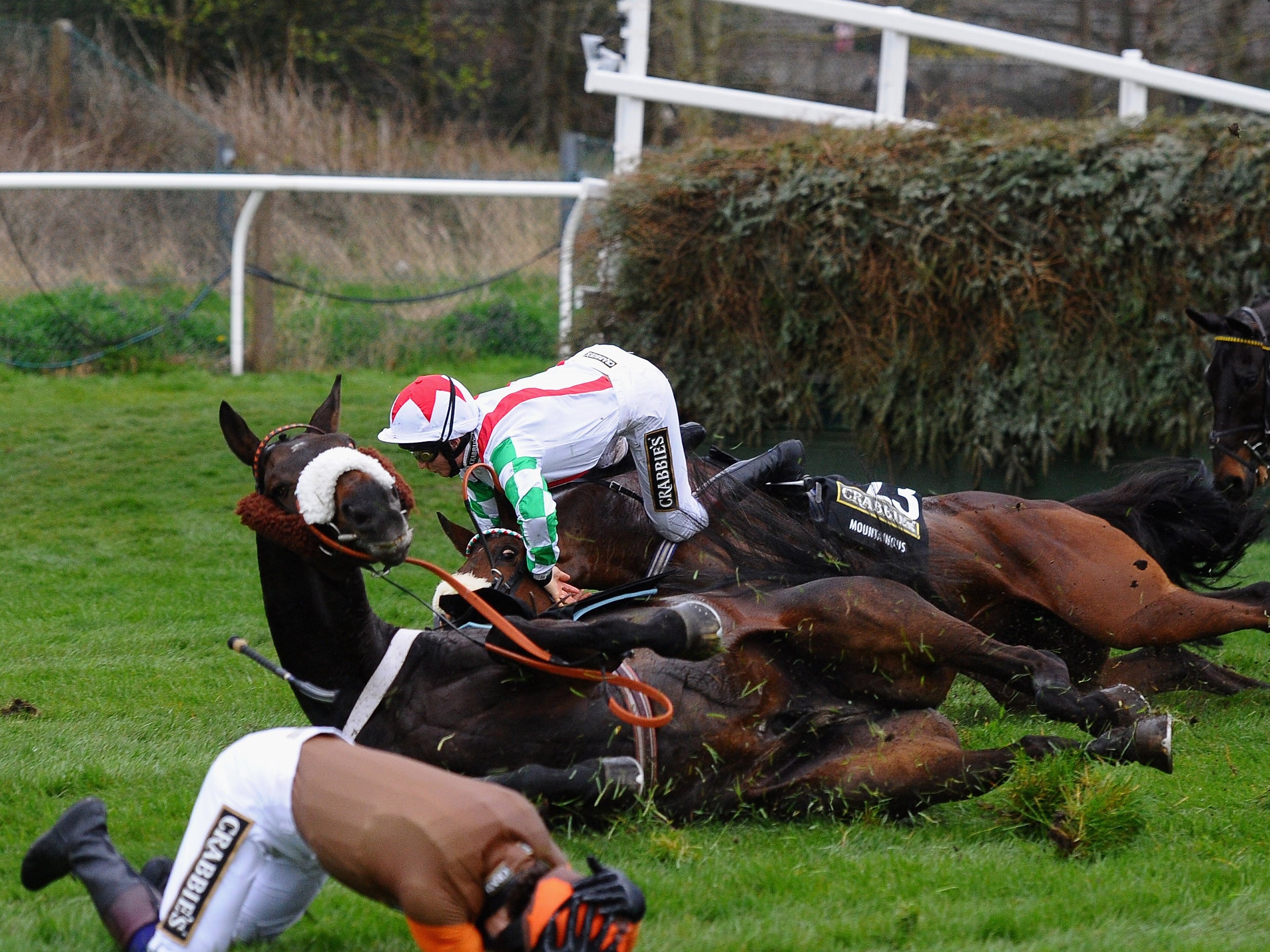Your support helps us to tell the story
From reproductive rights to climate change to Big Tech, The Independent is on the ground when the story is developing. Whether it's investigating the financials of Elon Musk's pro-Trump PAC or producing our latest documentary, 'The A Word', which shines a light on the American women fighting for reproductive rights, we know how important it is to parse out the facts from the messaging.
At such a critical moment in US history, we need reporters on the ground. Your donation allows us to keep sending journalists to speak to both sides of the story.
The Independent is trusted by Americans across the entire political spectrum. And unlike many other quality news outlets, we choose not to lock Americans out of our reporting and analysis with paywalls. We believe quality journalism should be available to everyone, paid for by those who can afford it.
Your support makes all the difference.Animal rights groups have condemned the racing industry after the death of Seedling in the Mersey Novices’ hurdle race at Aintree.
The horse was allegedly killed instantly after she fell at the second-to-last hurdle during the first race of Grand National day. Nichols Canyon, ridden by Ruby Walsh, went on to win the race.
Seedling, who was one of 12 horses in the race, was towards the back of the pack and is thought to have taken the hurdle “unsighted”, leading to the fall.
Andrew Tyler, director of the Animal Aid group, said that the horse “bounced like a rag doll. It’s very depressing, but not unusual”.
“We believe that horse racing is inherently exploitative and lethal for horses,” he told The Independent.
“We want the Grand National banned. It’s a disgusting, exploitative race. It’s an appalling thing to set before horses.
“There’s been barely been a sentence about Seedling in the media. She’s just another largely invisible casualty of the industry, the jockey was up riding another horse shortly after,” he added.
Since 2000, 16 other horses have died on the Mildmay course at Aintree, while 24 have been killed on the Grand National course, 11 of which were deaths during the famous race. About 200 horses die in horse races across the country every year.
In 2011, a poll commissioned by Animal Aid found that a majority of respondents thought the Grand National was cruel.
The course is considered too long, with too many demanding fences to jump by many campaigners.
Tom Quinn, campaigns director for the League Against Cruel Sports said: “Any animal death in the name of sport is a pointless tragedy and completely preventable.
"Since 2000, more than 40 horses have been killed at this highly profitable 3-day event because organisers prioritise the ‘unique character’ of the race over the safety of horses and jockeys. The welfare of the horses must be paramount and placed above profits.”
He added: “The League Against Cruel Sports has called for a ban on the race meeting until a number of welfare improvements have been made.”
Aintree has been approached for comment.

Join our commenting forum
Join thought-provoking conversations, follow other Independent readers and see their replies
Comments